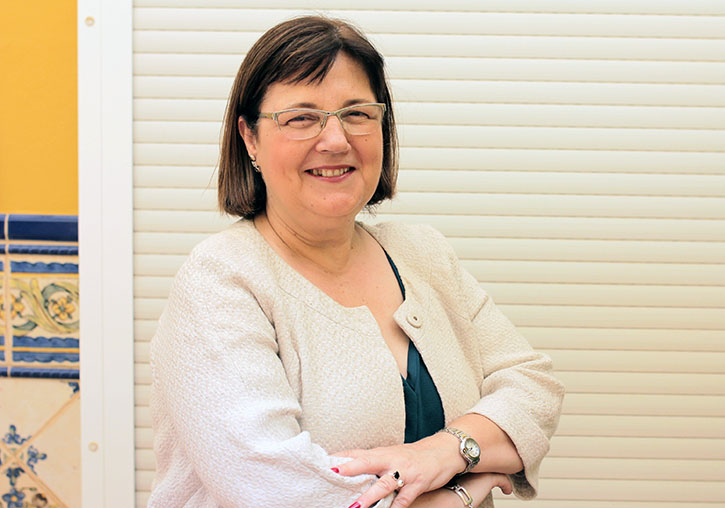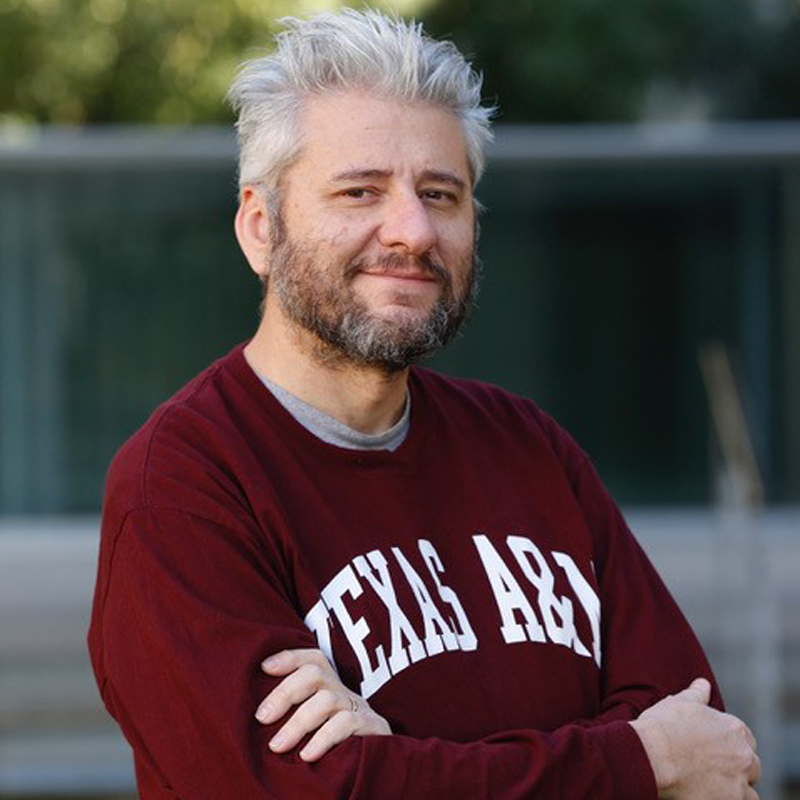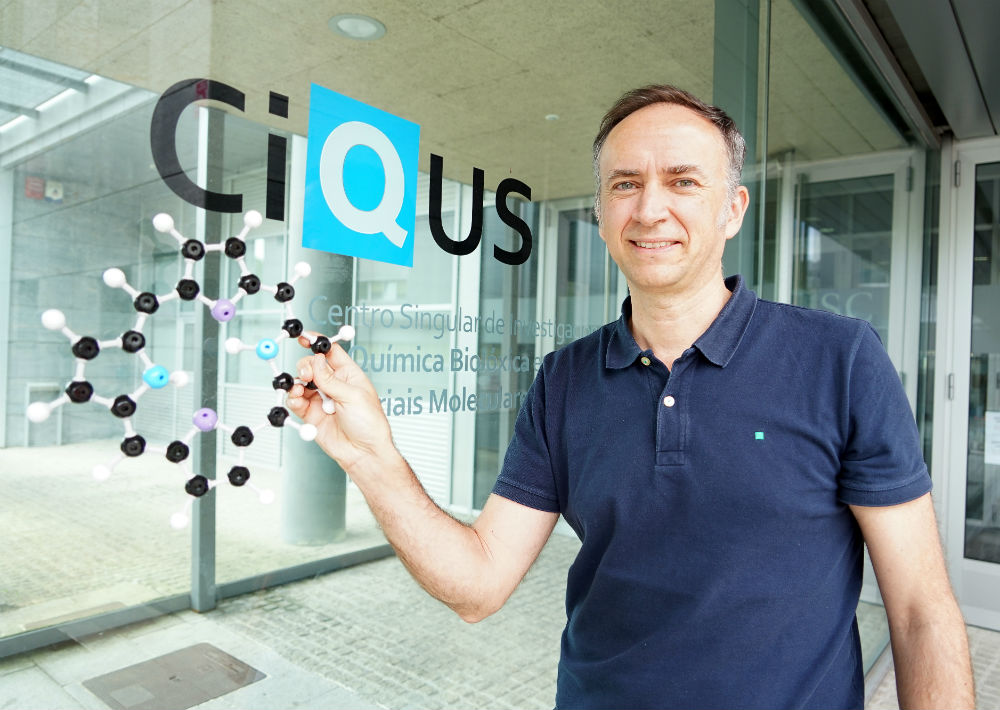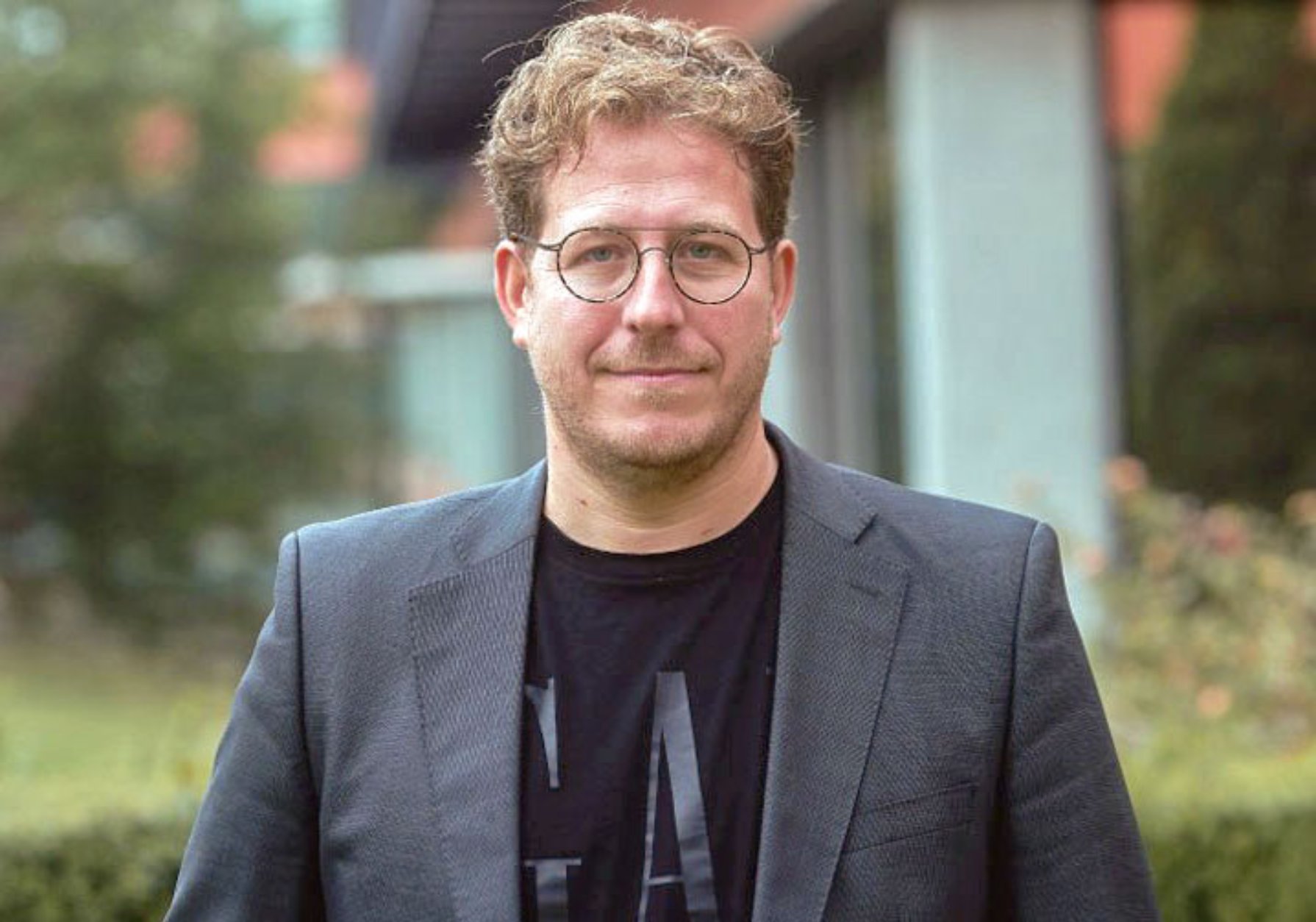The Institute for Molecular Science will host this Friday its annual scientific and informational day
- Science Park
- December 11st, 2019

Fullerene super-molecules against Ebola, Dengue or Zika virus; perfect chemical nanoribbons for electronic development, or electro-catalysis to convert CO2 from the atmosphere into chemicals of industrial interest, helping to reduce the climate change effects, will be the main themes of the 19th ICMol Scientific Days which will be held this Friday 13th December at the Assembly Hall of the Research Institutes of the Science Park of the Universitat de València. The encounter will pay posthumous tribute to the Valencian physicist Catalina Ruiz.
The Institute for Molecular Science (ICMol) of the Universitat de València has already held nineteen editions of the Scientific Conference, one of its main dissemination activities. The encounter, celebrated annually since the creation of the Institute in the year 2000, will revolve around the lectures of three internationally renowned scientists: José Ramón Galán-Mascarós, Diego Peña Gil and Nazario Martín León. The day will also pay posthumous tribute to the Valencian physicist Catalina Ruiz Pérez, who passed away last august, and with whom ICMol had close ties.
The day will take place at the Assembly Hall of the Research Institutes of the Scientific Park from 9 a.m. to 1:30 p.m.. It will be inaugurated by the Principal of the Universitat de València, Mavi Mestre; the executive vice-President of the Agència Valenciana de la Innovació (AVI, Valencian Agency for Innovation), Andrés García Reche; and ICMol’s Director, Eugenio Coronado.
José Ramón Galán-Mascarós develops his work at the Institute of Chemical Research of Catalonia (ICIQ) in Tarragona, from where he leads a research group focused on coordinating chemistry applications to renewable energies and materials. He also works on the development of new catalysts and stable, efficient and low-cost platforms for the solar fuel production, with particular interest on water oxidation catalysis. On the other hand, he designs multifunctional intelligent materials capable of display new phenomena from an unusual combination of physical properties. He is a research Professor at ICREA (Catalan Institution for Research and Advanced Studies) and he has just been awarded with the RSEQ Award for the Excellence in Research 2019.
With his lecture “Oxygen Evolution Electro-catalysis with Earth-Abundant Metals”, presented by Toribio Fernández Otero (Universidad Politécnica de Cartagena), he will explain how to convert atmospheric CO2 into chemical products of industrial interest, by electro-catalysis, also contributing to reducing the climate change effects.
Diego Peña Gil develops his work at the Center for Research in Biological Chemistry and Molecular Materials (CiQUS-University of Santiago de Compostela). His main research areas include the development of new synthetic methodologies, homogeneous catalysis using metal complexes, preparation of aromatic polycyclic compounds of nanometric sizes and nano-graphies and their study as new molecular materials, among others.
Through his presentation on “Combining Organic Chemistry with Surface Science: From Elusive Molecules to Graphene Materials”, presented by Ángela Sastre Santos (UMH), Diego Peña will deal with the study of the properties of cleaner and more perfect chemical graphene nanoribbons, a material which is currently helping on developing fields such as electronics.
Nazario Martín León, Senior Lecturer in Organic Chemistry at the Universidad Complutense of Madrid and vice-Principal of the IMDEA Nanoscience Institute. His scientific interests revolve around the molecular and supramolecular chemistry of carbon nanostructures, such as fullerenes, carbon and graphene nanotubes, p-conjugated systems such as molecular cables and electroactive molecules, in the context of electron transfer processes, photovoltaic applications and nanoscience. Among others, it is awarded the James I Award for Basic Research 2012 and the Ciamician-González Lectureship 2019 Prize.
On his lecture "Multivalent Glycofullerenes for Emergent Viruses”, he will talk about new molecules that paralyse virus activity by acting as vectors to combat Dengue, Ebola and Zika virus.



More information:
File in: Química , Física , Ciencias Tecnológicas
















